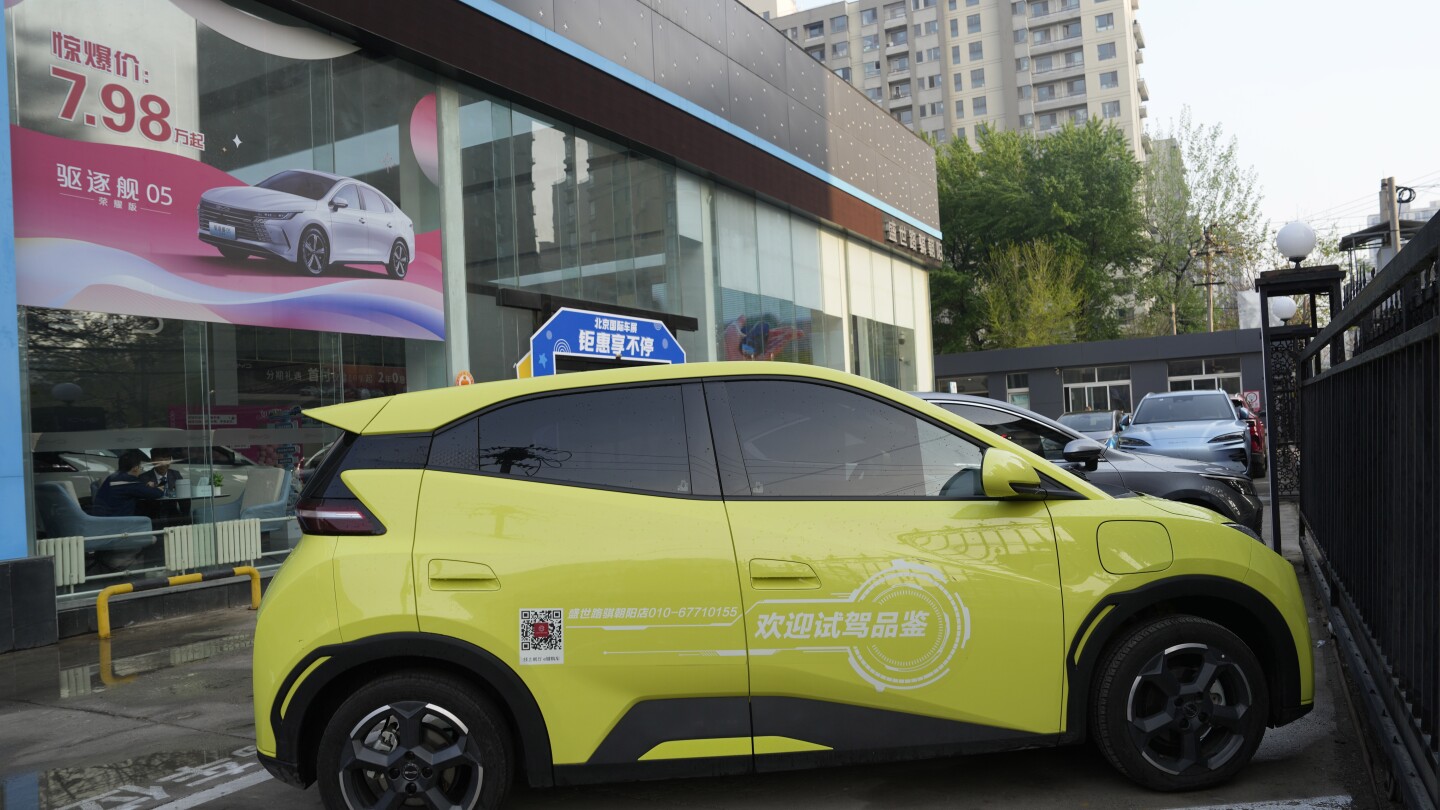A tiny, low-priced electric car called the Seagull has American automakers and politicians trembling.
The car, launched last year by Chinese automaker BYD, sells for around $12,000 in China, but drives well and is put together with craftsmanship that rivals U.S.-made electric vehicles that cost three times as much. A shorter-range version costs under $10,000.
Tariffs on imported Chinese vehicles probably will keep the Seagull away from America’s shores for now, and it likely would sell for more than 12 grand if imported.
But the rapid emergence of low-priced EVs from China could shake up the global auto industry in ways not seen since Japanese makers exploded on the scene during the oil crises of the 1970s. BYD, which stands for “Build Your Dreams,” could be a nightmare for the U.S. auto industry.
“Any car company that’s not paying attention to them as a competitor is going to be lost when they hit their market,” said Sam Fiorani, a vice president at AutoForecast Solutions near Philadelphia. “BYD’s entry into the U.S. market isn’t an if. It’s a when.”



Leverage your precious free market capitalism and compete, assholes. It’s not a threat, it’s an opportunity.
So, there’s a guy Silicon Valley Billionaire named Peter Thiel who released a book back in 2014 called “Zero to One”, in which he advocates for the monopoly system and claims any good businessman ultimately seeks to corner the market.
The US car market has been consolidating over the last 40 years, in an effort to cartelize and ultimately monopolize the automotive industry. We’ve passed a host of regulations and taxes that compel foreign manufacturers to build and assemble cars domestically, to partner with US car firms, and to absorb parts of the market American firms don’t want to occupy (US firms have functionally given up making small cars - almost everything is a truck or an SUV now). And we’ve unleashed our investment banks on East Asian industries, guaranteeing financial control of the largest firms in Korea, Japan, The Phillipines, and Taiwan via our international system of credits and debits.
The goal was never free markets, it was captured revenue streams. As we enter a new high surveillance age, vehicles are increasingly part of the always-on Internet Of Things information network used to continuously monitor anyone with enough money to afford a cellular device.
Excising firms like Huawei, ByteDance, and now BYD from the US marketplace is about cementing that captured state of the American economy and tightening the surveillance network. These are absolutely perceived of as threats, because they don’t integrate into our controlled networks. Until Chinese businesses are willing to submit to Five-Eyes surveillance and the Chicago School Economics of the New York banks, they’re not welcome in our country.